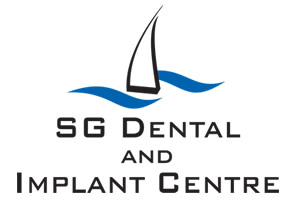Gum Health – The Essentials
Mike Allen discusses this sometimes underappreciated but essential aspect of oral care
As dentists, most people probably associate us with teeth. This is understandable and indeed the word dentist comes from the French ‘dent’, meaning teeth. Over time though, our remit has grown to cover not only looking after a patient’s teeth but also the soft tissue area of the oral cavity. Care of some aspects of this are observational only, with potentially serious issues such as mouth cancer, referred to medical specialists. Gum health however, is certainly within our remit.
Good gum health is important, not only for your own comfort but because poor gum health can lead to a number of problems including, ultimately, the loss of teeth. In today’s blog, we take a look at potential symptoms, the problems it can cause and how you can keep yours in good health.
Why is gum disease a problem?
As we just mentioned, ultimately, advanced gum disease can lead to tooth loss. Even before this stage though it can cause wobbly or loose teeth as well as a significant amount of discomfort and can also lead to socially embarrassing problems like having smelly breath. There are various degrees of gum disease and most of us will have it from time to time in our lives for a short period of time. Perhaps we are ill and forget to clean our teeth or haven’t brushed as well for some reason or other. In most cases, as long as this is short lived, your gum health should be restored once you start to clean them well again.
There are two main stages of gum disease; gingivitis and periodontitis. Gingivitis is easier to manage and sometimes just an improvement in the way that you clean them can reverse this. Regular professional cleaning by the dental hygienist at our Burton practice will also help to keep this in check.
Periodontitis is more serious and can, in some cases, require an invasive treatment known as root planing, where the hardened bacteria has to be removed from the root of the tooth and sometimes the supporting bone too. This has to be carried out by a suitably qualified dentist and not by the hygienist.
What are the symptoms of gum disease?
It should be noted that being symptom free doesn’t mean that you don’t have a problem. For this reason, everyone should make a dental hygienist appointment at least every six months. There are some symptoms though which are very common and possible indicators of gum disease.
Symptoms may include:
- Sore and/or inflamed gums
- Bleeding following cleaning of the teeth
- Bad breath or halitosis
- Sensitivity to touch
- Wobbly teeth
If you have any of these symptoms, please don’t ignore it and make an appointment at Mike Allen’s Dental Practice as soon as you can. Gum disease is progressive so the sooner you can have the problem looked at and treated where necessary, the better.
Prevention and treatment
Good gum health starts at home. Regular brushing is essential of course and hopefully all of our Burton patients already do this. It is advisable to eat healthily too, keeping sugars to a minimum. Stopping smoking will greatly improve your gum health as well as nicotine narrows the blood vessels including those in the gums. This restricts blood flow and may lead to a higher risk of infection. One area that many patients can improve on though is the use of dental floss. Far too few people do this and it is one of the easiest and best ways of improving your oral health.
Food and bacteria can become trapped between our teeth and underneath the gum line. Although brushing will remove some of this, it is likely that the bristles of the toothbrush won’t be able to reach certain areas. Flossing is excellent for this. It isn’t difficult to do once you get used to it and there are many online tutorials that you might find helpful. If you are unsure how to floss, our hygienist is always happy to offer advice.
You should also see our hygienist at least twice a year and more if you are in a vulnerable group. As part of this visit, you will receive a scale and polish where the tartar is removed from the teeth and gum line. This is a non invasive treatment and should cause little or no discomfort. It will help to protect your teeth and gums and also leave you with a fresher feeling mouth. The treatment is also likely to remove at least some surface staining from your teeth, making them look nicer too!
If you would like to see the hygienist at our Burton practice, or to make an appointment for another reason, please call Mike Allen’s Dental Practice on 01283 845345.
